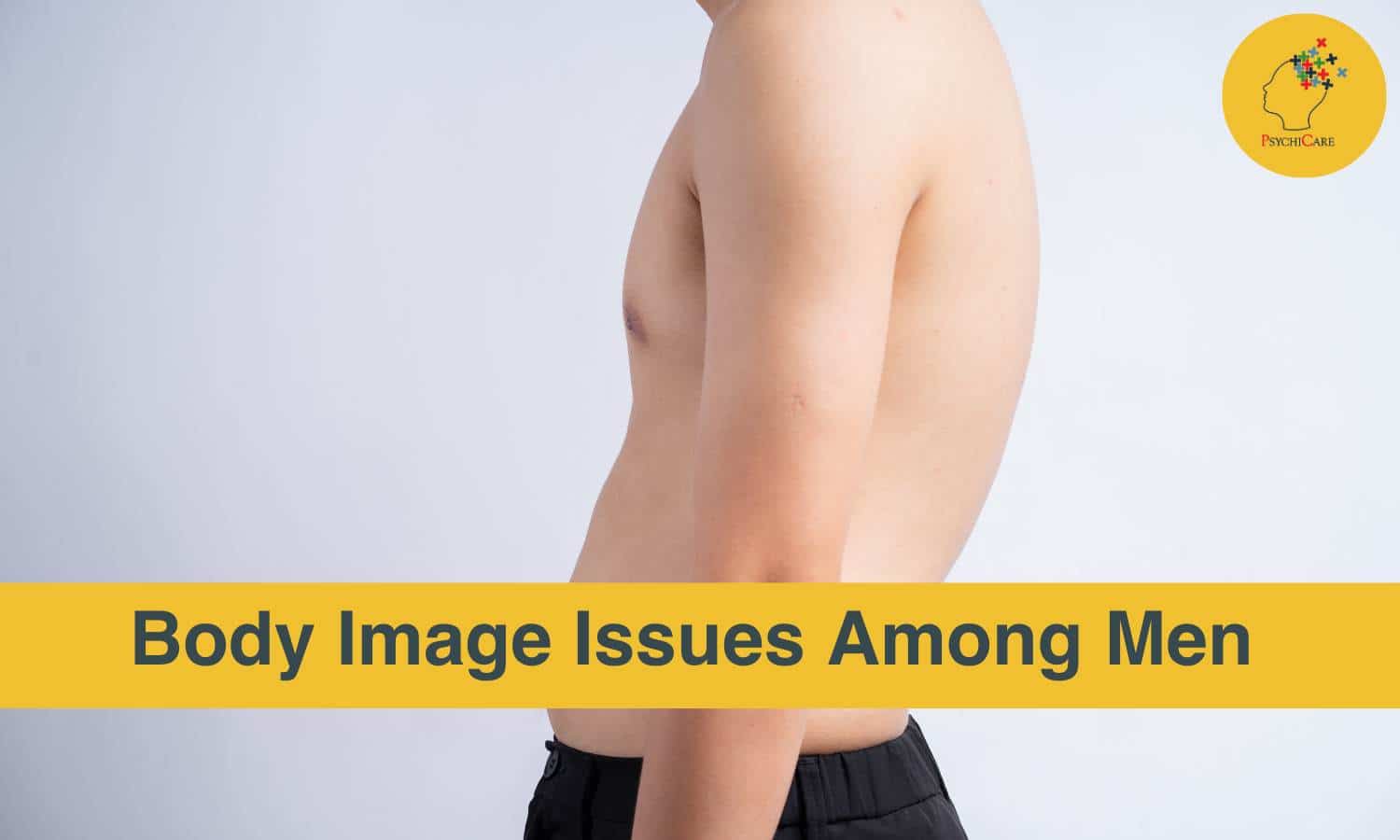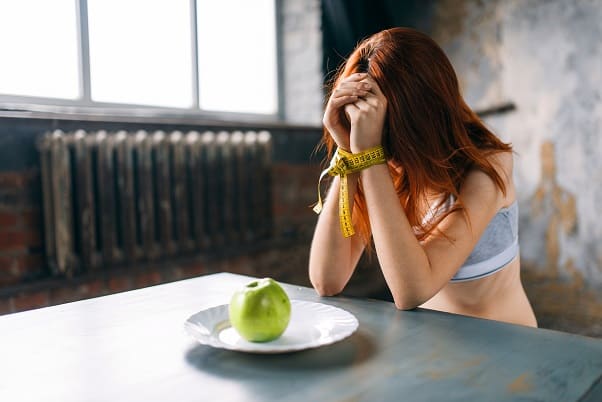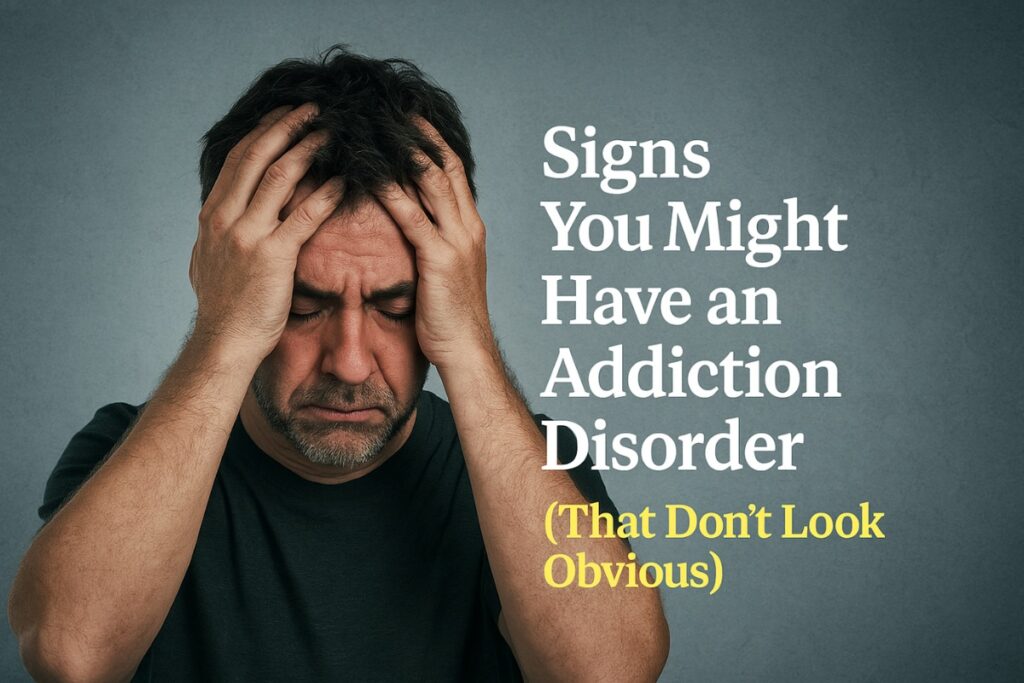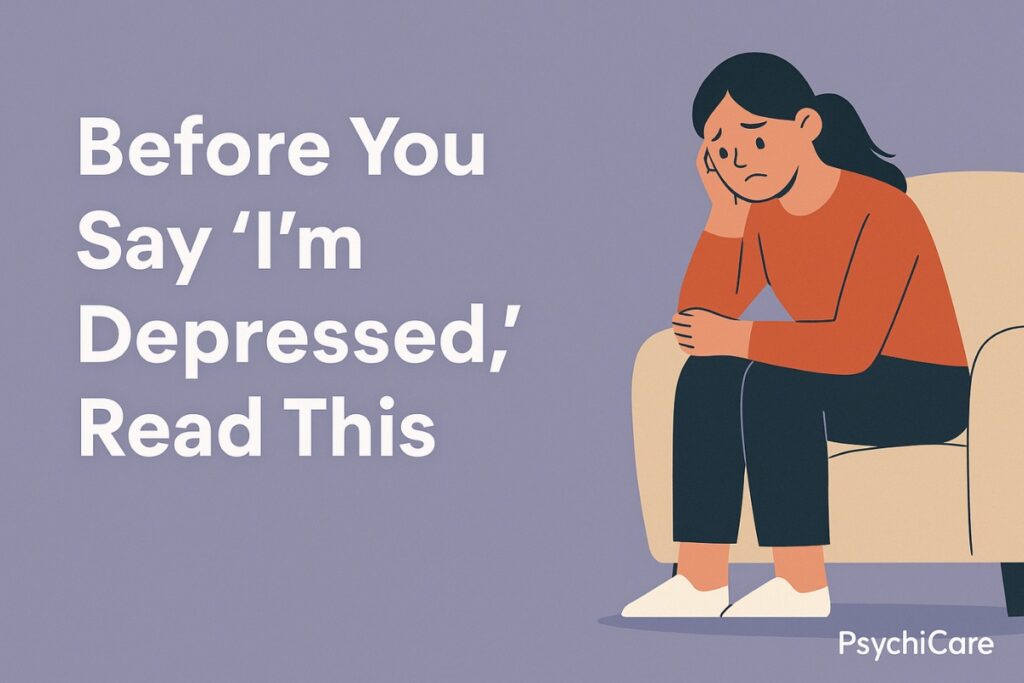Last updated: December 2025
Most body image issues don’t start with hating your body.
They start with small habits that feel reasonable.
- Checking the mirror before leaving
- Avoiding certain clothes
- Cancelling plans at the last minute
- Comparing yourself to people online
- Thinking life will feel easier once your body changes
None of this feels extreme at first.
But slowly, appearance starts deciding things it shouldn’t.
- What you wear
- Where you go
- How visible you allow yourself to be
- How your mood shifts across the day
When that happens, the problem is no longer about looks.
It becomes about control, avoidance, and attention.
This article is not about loving your body.
It is not about confidence, positivity, or mindset hacks.
It focuses on the behaviours that keep body image issues active, even in people who already understand why they struggle.
Dealing with body image issues means changing what you keep doing in response to discomfort, not fixing the body itself.
What “dealing with” body image issues actually means
Most people think dealing with body image issues means:
- changing how they look
- thinking more positively
- ignoring uncomfortable thoughts
That’s not what keeps the problem going.
Body image issues persist because of repeated behaviours, not a lack of insight.
- checking mirrors or photos
- adjusting clothes for reassurance
- avoiding situations that feel exposing
- controlling food or exercise to manage anxiety
Each action brings short relief.
Each action strengthens the belief that appearance needs constant management.
Dealing with body image issues means interrupting these patterns early, before they start deciding how you live.
If behaviour stays the same, the problem usually does too.

15 Ways to Deal With Body Image Issues That Quietly Take Over Daily Life
Body image issues don’t stay limited to thoughts.
They show up in routines, choices, and habits that feel practical but slowly reduce freedom.
The points below focus on behaviours that keep body image distress active, and what actually changes the pattern instead.
1. Stop using mirrors, photos, and measurements to decide how you feel
Body checking is often mistaken for awareness.
In body image issues, it functions as reassurance.
Mirrors, selfies, reflections, weighing scales, and measurements are used to answer one question:
“Am I allowed to feel okay right now?”
The pattern is consistent:
- discomfort appears
- checking follows
- relief lasts briefly
- checking increases
Over time, mood becomes dependent on appearance monitoring rather than context or experience.
This is how body image issues shift from thoughts into a daily control system.
Reducing body checking doesn’t mean avoiding mirrors completely.
It means stopping the habit of using your body as the reference point for safety, confidence, or permission to live normally.
2. Stop postponing your life until your body changes
In body image issues, postponement becomes a strategy.
- trips
- social plans
- dating
- career visibility
- being seen in photos
The logic sounds practical:
“I’ll do this once I feel better about my body.”
What actually happens is conditioning.
Each delay teaches the brain that participation requires appearance approval. Over time, body image issues stop being a background concern and start organising daily choices.
The problem isn’t discomfort.
It’s training avoidance as a solution.
When life is repeatedly postponed, distress doesn’t reduce.
It accumulates.
3. Stop asking others to confirm that you look fine
Reassurance feels helpful in the moment.
In body image issues, it functions as emotional regulation.
Questions like:
- “Do I look okay?”
- “Is this outfit fine?”
- “Be honest, do I look bad?”
aren’t about information. They’re attempts to reduce discomfort quickly.
The relief that follows is brief. Doubt returns, often stronger, and the urge to ask again increases. Over time, confidence becomes dependent on external approval rather than context, experience, or internal opinion.
This is why reassurance keeps body image issues active.
It shifts regulation outward.
When feeling settled depends on what others say about your appearance, the pattern tightens rather than resolves.
4. Notice constant body scanning in public spaces
Body scanning is not the same as checking a mirror.
It happens while you’re moving.
Common signs include:
- adjusting posture repeatedly
- pulling clothes into place
- monitoring how your body looks while walking or sitting
- staying mentally focused on appearance instead of the situation
In body image issues, this scanning becomes automatic. Attention keeps returning to the body even when there is no actual problem to solve.
The result isn’t better control.
It’s constant self-focus.
Over time, this pattern makes social settings feel tiring and restrictive because attention never fully leaves the body.
5. Reduce appearance ranking, not just “toxic content”
Most people try to fix this by unfollowing a few accounts.
That rarely changes the pattern.
In body image issues, the problem isn’t one type of content.
It’s repeated exposure to appearance ranking.
Filtered photos, edited videos, glow-up clips, and before–after posts train the brain to sort bodies automatically. Over time, this turns appearance into a scorecard, including your own.
Even when you know these images are staged, the habit sticks. Your body starts feeling like something that needs constant comparison and correction.
The risk isn’t inspiration.
The risk is teaching yourself to keep checking where you stand.
6. Separate discomfort from actual risk
Discomfort around your body often gets treated as a warning sign.
It isn’t.
In body image issues, discomfort is misread as proof that something needs to be avoided. Ordinary situations start feeling unsafe, even when there is no real threat.
The pattern is consistent:
- discomfort appears
- avoidance follows
- short relief is felt
- future discomfort increases
Avoidance doesn’t reduce sensitivity.
It trains the body to react faster and stronger next time.
The issue isn’t feeling uncomfortable.
It’s learning to treat discomfort as danger.

7. Track avoidance patterns instead of body flaws
In body image issues, attention usually goes to flaws.
That focus misses the real signal.
What matters more is what you start avoiding:
- certain clothes
- specific places
- photos or videos
- situations where you feel visible
Avoidance brings short relief.
It also teaches the brain that being seen leads to negative reactions.
Over time, daily choices get filtered through one question:
“Will my body draw attention here?”
The problem isn’t noticing flaws.
It’s training avoidance to run your behaviour.
8. Identify control behaviours disguised as discipline
In body image issues, control often looks responsible.
- strict food rules
- rigid exercise routines
- panic when routines are disrupted
These behaviours usually start as a way to feel settled.
The relief is short. Control reduces anxiety briefly, then teaches the brain that losing control is a threat. Over time, the rules tighten, flexibility drops, and fear increases.
The issue isn’t structure.
It’s using control to manage discomfort around the body.
When discipline is driven by fear rather than choice, body image issues don’t improve. They become more rigid.
9. Stop using your body as the explanation for unrelated problems
In body image issues, the body often becomes the default explanation.
- missed opportunities
- relationship discomfort
- hesitation at work
- pulling back socially
- The reasoning feels logical:
“This happened because of how I look.”
What’s actually happening is displacement. When stress, fear, or self-doubt appear, attention shifts to the body because it feels concrete and controllable.
Over time, appearance absorbs blame for problems it didn’t create. That keeps the real causes untouched and allows body image issues to stay active.
The issue isn’t awareness.
It’s assigning the wrong cause.
10. Pay attention to when body focus spikes during stress
Body image issues often intensify during pressure, not after appearance changes.
When stress rises, attention looks for something concrete to land on. The body becomes an easy target because it is visible, measurable, and familiar.
The pattern repeats:
- stress increases
- body focus sharpens
- checking or control behaviours return
- brief relief follows
This creates a false link between pressure and appearance. Over time, unrelated stress starts getting processed through the body.
The issue isn’t stress itself.
It’s allowing stress to redirect attention toward appearance.
When this keeps happening, body image issues become the default response to strain rather than a reaction to how you actually look.
11. Drop constant self-criticism when describing your body
In body image issues, language does more than express frustration.
It trains attention.
This isn’t about an occasional complaint.
It’s about repeated commentary that keeps the body under review.
- pointing out flaws out loud
- mentally listing what feels “off”
- using harsh labels when nothing has changed
Each repetition pulls focus back to appearance and turns neutral moments into body-focused ones. Over time, the body starts feeling like a problem that needs constant correction.
The issue isn’t honesty.
It’s using language that keeps attention stuck on appearance.
When this pattern repeats, body image issues stay active even without obvious triggers.
12. Know when body image issues are no longer the main problem
Body image issues rarely exist in isolation for long.
When appearance-related thoughts start driving:
- ongoing food restriction or binge cycles
- persistent low mood
- pulling away from social life
- loss of interest in everyday activities
the focus has usually shifted.
At this point, body image issues are no longer the core problem. They become the surface where broader distress shows up, not the source of it.
The risk is mislabeling. Treating everything as a body image concern can delay addressing what’s actually driving the pattern.
The issue isn’t intensity.
It’s recognising when the problem has moved beyond appearance.
13. Use therapy to change patterns, not your body
When body image issues persist, therapy is often approached with the wrong goal.
People expect therapy to help them feel better about how they look. In practice, therapy works when it targets the behaviours that keep appearance central.
These usually include:
- reassurance seeking
- avoidance cycles
- control through food or exercise
- attention locking onto the body during stress
When these patterns shift, body image issues often reduce without direct focus on appearance. When they don’t shift, talking about confidence or acceptance rarely leads to change.
The issue isn’t effort.
It’s working on the wrong target.

14. Decide early when self-management is no longer enough
Many people try to manage body image issues on their own for longer than is useful.
They adjust routines, avoid triggers, and monitor behaviour closely, expecting the pattern to settle. When the same cycles keep returning, self-management usually isn’t the problem. It has reached its limit.
When body image issues start affecting:
- work consistency
- relationships
- eating patterns
- daily functioning
continuing alone often keeps the pattern stable rather than changing it.
The issue isn’t effort or discipline.
It’s recognising when a different level of intervention is needed.
15. Shift trust from appearance to function
Body image issues weaken trust in the body, not because of how it looks, but because appearance becomes the main reference point.
When appearance stays central, daily activities turn into quiet evaluations. When function leads, attention moves outward and the body stops acting as a constant filter.
This shift shows up in practical ways:
- choosing movement for capability, not correction
- wearing clothes that allow ease rather than constant adjustment
- noticing what your body supports during the day instead of how it compares
This doesn’t remove discomfort instantly. It changes what gets reinforced.
The issue isn’t ignoring appearance.
It’s reducing how much authority appearance has over decisions.
When function leads consistently, body image issues lose their ability to organise daily life, even if moments of discomfort still occur.
How reels and short videos intensify body image issues
Short-form videos change how people compare.
Reels and videos repeatedly show slim, lean, and highly controlled bodies, for both girls and boys. These clips are edited, filtered, tightly framed, and consumed in high volume. The brain doesn’t treat this as inspiration. It treats it as reference.
With repeated exposure, comparison becomes automatic. People don’t actively decide to compare, it happens before conscious thought. Over time, the body on screen becomes the standard, and one’s own body starts feeling inadequate even without any actual change.
This effect is driven by frequency, not belief. Knowing videos are edited does not stop the comparison loop. High exposure keeps appearance at the centre of attention, which is why body image issues often spike after scrolling, especially during stress or low energy.
The issue isn’t watching videos occasionally. It’s spending long stretches in spaces where bodies are consistently presented as a measure of value.
When exposure reduces, comparison weakens. When it doesn’t, the pattern keeps restarting.
How body image issues affect men and women differently
Body image issues show up in both men and women, but the pressure points are often different.
For many women, the focus is usually on weight, shape, and visible softness. Thinness, flat stomachs, and tightly controlled bodies are repeatedly presented as desirable. This leads to constant monitoring, food restriction, and comparison, even when health or functioning is not affected.
For many men, body image issues tend to centre around size, muscularity, and leanness. Broad shoulders, visible abs, and low body fat are treated as markers of strength and status. This often drives excessive exercise, rigid routines, or dissatisfaction even when the body is objectively fit.
Despite these differences, the underlying pattern is the same. Appearance becomes tied to worth, respect, or confidence. Men and women both start organising behaviour around how their body might be perceived rather than what they want or need to do.
The problem isn’t caring about appearance.
It’s when appearance begins to control decisions, behaviour, and self-evaluation across daily life.
When to seek online counselling for body image issues
Body image issues don’t always need therapy.
Online counselling for body image issues becomes relevant when the same patterns keep returning despite conscious effort to change them.
Consider professional help when body image issues:
- keep controlling food, exercise, or daily routines
- reduce flexibility in work, relationships, or social life
- persist even after reducing triggers or self-work
At this point, the issue is no longer about appearance. It’s about a pattern that has stopped responding to self-management.
At PsychiCare, online counselling for body image issues is provided by licensed clinical psychologists with experience in body image, anxiety, and eating-related concerns. Sessions focus on changing the pattern that keeps appearance central, not on fixing how the body looks.

Frequently Asked Questions About Body Image Issues
Why do I keep thinking about my body all the time?
Thinking about your body constantly usually happens when attention gets trained to monitor appearance for safety or control. This pattern often continues even without dissatisfaction and increases during stress, boredom, or heavy exposure to appearance-focused content.
Why do I compare my body to others even when I know it’s unrealistic?
Comparing your body to others becomes automatic after repeated exposure to edited photos and videos. Awareness that images are unrealistic does not stop comparison because the brain treats frequent visuals as reference points, not facts.
Why didn’t losing weight fix my body image issues?
Losing weight does not fix body image issues when the underlying pattern is attention and control. Appearance changes may reduce discomfort briefly, but the habit of monitoring and comparison usually remains unchanged.
Do men struggle with body image issues too?
Men struggle with body image issues commonly around muscularity, leanness, and size. These concerns often lead to rigid exercise routines or dissatisfaction despite being physically fit, but they are discussed less openly than in women.
Can body image issues cause eating problems?
Body image issues can cause eating problems when control, restriction, or fear around food becomes a way to manage discomfort. Over time, this increases the risk of disordered eating patterns rather than resolving body concerns.
Why do body image issues get worse after using social media?
Body image issues worsen after social media use because repeated exposure to slim or sculpted bodies trains automatic comparison. The effect is driven by frequency of viewing, not belief in what is shown.
Do body image issues ever go away on their own?
Body image issues may settle on their own if they are mild and not behaviour-driven. Persistent issues usually continue unless habits like avoidance, reassurance seeking, or constant monitoring change.
When should I consider online counselling for body image issues?
Online counselling for body image issues is helpful when the same cycles keep returning despite self-effort and begin affecting eating, work, or relationships. At that point, the pattern has usually stopped responding to self-management.




